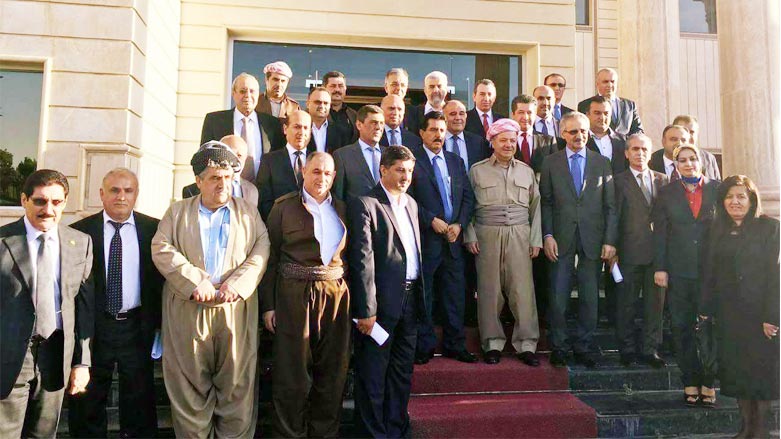Kurdistan Marks Eight Years Since Decision to Hold Independence Referendum
Eight years ago, Kurdish leaders set Sept. 25, 2017, for the independence referendum—over 92% voted “yes.” Despite backlash and military retaliation, the vote is seen as a defining moment of Kurdish unity and a symbol of the struggle for self-determination.

By Kamaran Aziz
ERBIL (Kurdistan24) – Saturday marks eight years since Kurdish political leaders formally set the date for the Kurdistan Region’s historic independence referendum, which was held on Sept. 25, 2017. The decision, endorsed during a pivotal meeting on June 7, 2017, in Pirmam, remains a milestone in the Kurdish national movement.
Chaired by President Masoud Barzani, the meeting brought together senior figures, including the then Prime Minister, Deputy President of the Kurdistan Region, and the head of the Kurdistan High Election and Referendum Commission. Representatives from major Kurdish political parties, including the Kurdistan Democratic Party (KDP), the Patriotic Union of Kurdistan (PUK), Kurdistan Islamic Union, Kurdistan Islamic Movement, Kurdistan Toilers’ Party, the Communist Party, representatives of ethnic and religious communities of Kurdistan, and other entities, also participated.
Read More: President Barzani: Setting referendum date significant achievement
The assembly unanimously agreed to hold a referendum on Kurdish independence on Sept. 25, 2017. This date was later ratified by the Kurdistan Parliament on Sept. 15 of the same year, granting full legal and institutional backing to the process.
The vote took place amid widespread public support. Out of more than 4.5 million eligible voters across Kurdistan Region and the Kurdistani territories outside the KRG's control, more than 3.3 million participated, a turnout exceeding 72 percent. Of those, over 92 percent voted in favor of independence.
Referendum organizers framed the vote as a legal and peaceful expression of the Kurdish people’s right to self-determination. The decision followed years of failed negotiations with Baghdad, broken promises, and systematic violations of Kurdish rights. Despite repeated attempts to secure constitutional guarantees within a federal Iraq, Kurdish officials argued that Baghdad had persistently undermined the agreed framework.
President Barzani and other Kurdish leaders emphasized that the referendum was the culmination of a long struggle marked by suffering, including genocide campaigns such as Anfal, mass displacement, and the use of chemical weapons against innocent civilians. The vote, they insisted, was a legitimate response to Iraq’s failure to uphold power-sharing and constitutional commitments.
However, just weeks after the vote, on Oct. 16, 2017, Iraqi forces launched a military offensive on Kirkuk and other Kurdistan territories. The operation, carried out with the support of Iran-backed militias and in coordination with some Kurdish actors, led to the withdrawal of Peshmerga forces, casualties among Kurdish Peshmerga fighters, and the displacement of tens of thousands of civilians from their ancestral homes.
On This Day — 8 Years Ago
— Kurdistan 24 English (@K24English) June 7, 2025
A defining moment in our history was set in motion.
On June 7, 2017, the leadership of the Kurdistan Region made the courageous and historic decision to hold a referendum on independence — scheduled for September 25, 2017.
It was more than a political… pic.twitter.com/Y0z2w5MHkc
In the aftermath, Kurdish leaders defended the referendum as a moral and historical necessity. While acknowledging the political costs, they argued that it reaffirmed Kurdish unity and internationalized the Kurdish question.
The referendum remains a watershed moment in contemporary Kurdish political history, widely commemorated each year as a symbol of national aspiration and defiance against decades of marginalization.
